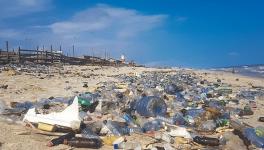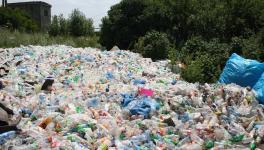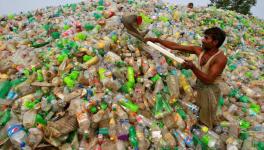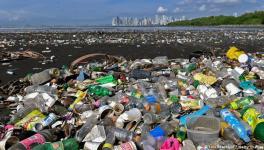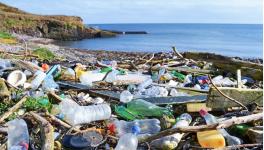When it Comes to Fueling Waste Crisis, US Tops Global List
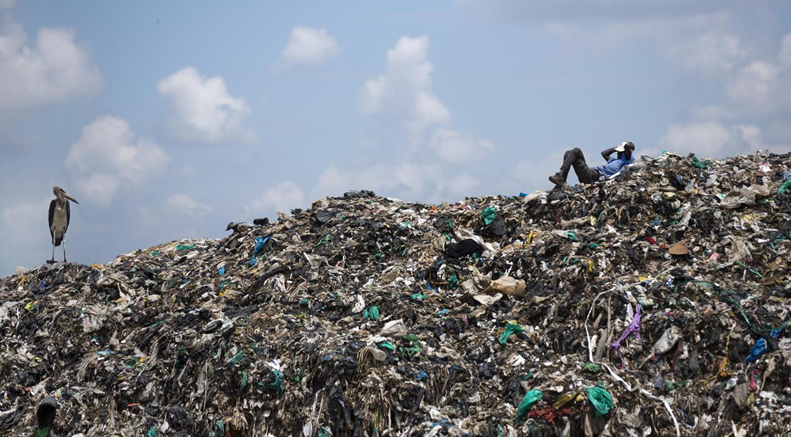
Image Courtesy: Los Angeles Times. Image is for representational use only.
Every year the world produces over 2 billion tonnes of municipal solid waste (MSW) and among the waste producers, US tops the list. US happens to produce three times the global average of waste, that include plastic and food. But when it comes to MSW recycling, the US lags behind other countries, reusing only 35% of the waste. This has been revealed in a recent analysis conducted by Verisk Maplecroft, the London based risk management firm.
The US makes up only 4 percent of the global population, but produces 12 percent of the global waste. On the other hand, China and India combined account for more than 36 percent of world’s population, but produce 27 percent of the global MSW.
On an average, Americans produce three times more waste than the global average that includes both food waste and plastic. The Verisk Maplecroft analysis shows that each American produces almost 773 kilograms of solid waste per year and in it, 234 pounds are plastic wastes. This implies that American output is three times more than the average Chinese person and seven times more than people of Ethiopia—as BBC reported.
Germany goes far beyond the US in waste recycling, with 68 percent of the country’s wastes being recycled. “The US is the only developed nation whose waste generation outstrips its ability to recycle, underscoring a shortage of political will and investment in infrastructure”—said the firm that analysed the global scenario.”
US damage the Global fight against Plastic Wastes:
When world’s oceans are reeling under the threat of plastic garbage dumped into it and when world’s marine lives are suffering from these plastics more than ever before, the careless attitude of the US poses a threat to the global efforts to curb plastic pollution and rescuing the oceans and their marine lives. At the UN environment conference held in Kenya in March this year, environmental groups accused the US of blocking the ambitious global plan against plastic use. The US also refused to join a global agreement that seeks to curb the flow of low grade plastics to developing nations.
The UN announced early this year that exporting countries will now have to take consent from countries that they want to export contaminated, mixed or unrecyclable plastic waste to. Before this the US and other countries could send low quality plastic waste to private players in developing countries without taking consent of any sort from their governments.
Will Nichols, the head of environmental research at Verisk Maplecroft, says— "I think you see in survey after survey that infrastructure in the US just isn't there to provide the recycling option. A lot of US waste - now that it can't get shipped to China - is just getting burnt; there just isn't the investment in place in infrastructure to deal with this problem. They (Asian countries) don't want to be the world's dumping ground anymore,"
Verisk Maplecroft’s Analysis:
In the analysis, the waste generation and recycling performance of 194 countries were taken into consideration. The analysis found that out of 2.1 billion tonnes MSW produced per year globally, only 16 percent—323 million tonnes get recycled each year, while 46 percent—950 million tonnes are disposed unsustainably.
With the US topping the list of global waste producers, highly developed European and North American countries are also causing disproportionate levels of waste generation. These wastes contain plastic as a significant component.
Regarding the danger of plastic waste on circulation and a possible way out, Niall Smith, senior environmental analyst at Verisk Maplecroft, said—“ There's too much focus on recycling being the kind of silver bullet solution, which it is not. We have enough plastic in circulation to really cause disruption of marine food webs, which is already in process. I think what we need to be working towards is almost a zero-material-footprint kind of society."
Get the latest reports & analysis with people's perspective on Protests, movements & deep analytical videos, discussions of the current affairs in your Telegram app. Subscribe to NewsClick's Telegram channel & get Real-Time updates on stories, as they get published on our website.













